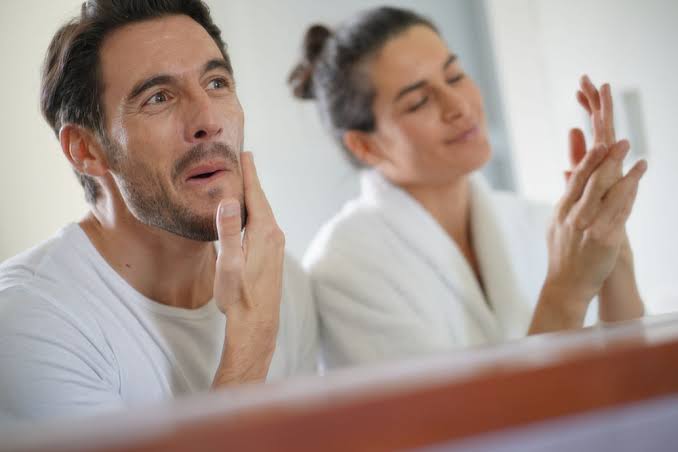
Effective Home Remedies vs. Medical Treatments: What Works Best for Sinus Relief?
Sinus relief can be managed through both home remedies and medical treatments, depending on the cause and severity. Remedies like steam inhalation, hydration, and herbal solutions bring comfort, while medical treatments address infections, chronic inflammation, or structural problems.
💪 Fitness Guru
39 min read · 16, Sep 2025

Introduction
Sinus problems are among the most common health issues people face, often bringing headaches, congestion, facial pain, and fatigue. When sinuses become inflamed or blocked due to infection, allergies, or weather changes, life can feel exhausting. The big question is—should you rely on home remedies or go for medical treatments?
Both approaches have their place. Home remedies are natural, cost-effective, and often provide soothing relief, while medical treatments can be essential when infections are severe or persistent. The key is understanding when to use which method—and how combining them may bring the best results.
This article explores the differences between home remedies and medical treatments for sinus relief, their effectiveness, benefits, and limitations, plus practical tips you can start using today. Sinus problems are something almost everyone experiences at some point in life. Whether it comes in the form of nasal congestion, facial pain, headaches, or constant sneezing, sinus issues can affect daily comfort and productivity. Sinusitis occurs when the tissue lining the sinuses becomes inflamed, often due to infections, allergies, or even weather changes. For people dealing with sinus discomfort, the question usually arises: are home remedies enough to bring relief, or is medical treatment necessary? To answer this, it is important to understand how both approaches work, their benefits, limitations, and when one may be better than the other.
Home remedies for sinus relief are usually the first line of defense because they are safe, accessible, and inexpensive. Steam inhalation is one of the most common remedies. Inhaling warm steam helps moisturize the sinus passages, loosen thick mucus, and relieve congestion. Many people add a few drops of eucalyptus or peppermint oil to the hot water for extra soothing effects. Similarly, using a humidifier in dry indoor environments can prevent sinus passages from drying out, reducing irritation and discomfort. Another widely used remedy is saline nasal irrigation, often done with a neti pot or squeeze bottle. Saline rinses flush out allergens, irritants, and excess mucus, providing natural relief without side effects. Hydration also plays a big role in sinus health. Drinking plenty of water thins mucus, making it easier to drain, while warm teas with ginger or turmeric provide both hydration and anti-inflammatory benefits. Applying warm compresses to the face can ease sinus pressure and pain, while certain foods like garlic and spicy peppers are known to help open up nasal passages temporarily.
Home remedies are generally effective for mild sinus discomfort and can be powerful for prevention. They are particularly useful for individuals with seasonal allergies or those who frequently experience nasal dryness. Since these remedies focus on natural healing, they also carry fewer risks compared to frequent use of over-the-counter medicines. However, their effectiveness is often limited when sinus issues are caused by bacterial infections, severe allergies, or chronic sinusitis. In such cases, while home remedies may reduce discomfort, they may not fully address the underlying cause.
On the other hand, medical treatments are designed to directly target the cause of sinus problems and provide faster, more controlled relief. Over-the-counter medications like decongestant sprays and tablets help reduce swelling in the nasal passages, making it easier to breathe. Antihistamines are effective for sinus issues triggered by allergies, as they reduce the body’s allergic response. Pain relievers like ibuprofen or acetaminophen can help manage headaches and facial pain associated with sinus inflammation. When sinusitis is caused by a bacterial infection, doctors may prescribe antibiotics to clear the infection and prevent complications. In more severe or chronic cases, nasal corticosteroid sprays are often recommended to reduce inflammation and prevent recurring issues. In rare instances where medication does not provide relief, surgical options such as endoscopic sinus surgery may be considered to remove blockages or correct structural problems.
Medical treatments have the advantage of being evidence-based and targeted, which often results in faster relief. They are especially necessary when sinus symptoms are persistent, severe, or accompanied by fever, thick discolored mucus, or swelling around the eyes. However, medical treatments also come with possible side effects. Overuse of decongestant sprays can cause rebound congestion, where the nose becomes even more blocked once the medication wears off. Antibiotics should only be used when truly necessary, as unnecessary use can lead to antibiotic resistance. Some medications may also cause drowsiness, digestive issues, or interactions with other drugs. This is why medical treatments should be guided by a healthcare professional, especially for recurring or chronic sinus conditions.
The best approach often lies in striking a balance between home remedies and medical treatments. For mild sinus issues caused by weather changes, dust, or seasonal allergies, home remedies such as steam inhalation, saline rinses, and hydration are usually enough to manage symptoms. These methods not only provide comfort but also support long-term sinus health without side effects. However, if symptoms persist beyond 10 days, worsen after initial improvement, or include severe pain and fever, medical treatment should not be delayed. At this stage, professional diagnosis helps determine whether the problem is bacterial, viral, allergic, or structural, ensuring the right treatment is given. In fact, doctors often encourage combining home remedies with medical treatments for the best results. For example, a patient prescribed a nasal steroid spray may also be advised to use saline rinses to keep the nasal passages clean and moist, improving the effectiveness of the spray.
Another important factor to consider is prevention. Practicing good hygiene by washing hands regularly, avoiding allergens, and keeping living spaces dust-free can reduce sinus flare-ups. Staying hydrated, eating a balanced diet rich in anti-inflammatory foods, and exercising to improve circulation also contribute to sinus health. Those prone to frequent sinus issues should avoid smoking, limit exposure to pollutants, and consider allergy testing if symptoms are triggered repeatedly. By combining healthy daily habits with occasional use of remedies or medical treatments, people can minimize both the frequency and severity of sinus problems.
In conclusion, both home remedies and medical treatments have their place in managing sinus relief. Home remedies are safe, natural, and effective for mild to moderate symptoms, especially when used consistently. They are excellent for prevention and for providing comfort without the risks of medication. Medical treatments, on the other hand, are essential for more severe or persistent cases, offering faster and targeted relief when natural methods are not enough. Rather than seeing the two as opposites, it is best to view them as complementary approaches. By listening to one’s body, starting with gentle remedies, and seeking medical advice when necessary, individuals can find the most effective path to sinus relief. Ultimately, the key lies in knowing when home care is sufficient and when professional treatment is required, ensuring both short-term comfort and long-term sinus health.
Understanding Sinus Problems
Your sinuses are air-filled spaces in your skull that help filter the air you breathe. When they get blocked, mucus builds up, leading to pain and pressure.
Common causes of sinus issues include:
- Viral or bacterial infections (like colds or flu)
- Allergies (dust, pollen, mold)
- Deviated nasal septum
- Weather or pollution changes
- Weak immunity
Symptoms of sinus problems include:
- Stuffy or runny nose
- Facial pain or pressure (forehead, cheeks, eyes)
- Post-nasal drip (mucus running down the throat)
- Headaches
- Cough, especially at night
- Loss of smell or taste
- Fatigue
Home Remedies for Sinus Relief
Home remedies focus on easing discomfort, opening nasal passages, and boosting natural healing. They are usually safe, easy, and suitable for mild sinus issues.
1. Steam Inhalation
Hot steam helps loosen mucus and reduce nasal congestion.
- Add eucalyptus oil, peppermint, or ajwain seeds to boiling water.
- Cover your head with a towel and inhale deeply for 5–10 minutes.
2. Warm Compress
Placing a warm cloth over the forehead and nose reduces sinus pressure and pain.
3. Hydration & Herbal Teas
- Drinking plenty of water thins mucus.
- Herbal teas like ginger, tulsi, or chamomile reduce inflammation and soothe the throat.
4. Saline Nasal Spray / Rinse
Rinsing with a saltwater solution clears allergens, bacteria, and mucus from the nasal passages. A neti pot or simple saline spray works well.
5. Spices & Natural Ingredients
- Turmeric milk: Natural anti-inflammatory and antioxidant.
- Garlic: Fights infections.
- Ginger: Reduces swelling and boosts immunity.
- Honey with warm water: Soothes throat irritation.
6. Rest & Humid Environment
Adequate rest strengthens the immune system. Using a humidifier or placing a bowl of hot water in your room prevents dryness.
When home remedies work best:
- For mild sinus congestion or seasonal allergies
- During early stages of cold or flu
- As supportive care alongside medical treatments
Medical Treatments for Sinus Relief
Medical treatments aim to directly treat infection, reduce inflammation, and prevent complications. They’re important when symptoms are severe, long-lasting, or recurring.
1. Over-the-Counter Medicines
- Decongestants (nasal sprays or tablets): Shrink swollen nasal tissues for short-term relief.
- Antihistamines: Useful if allergies trigger sinus problems.
- Pain relievers like ibuprofen or paracetamol: Reduce headaches and facial pain.
2. Prescription Treatments
- Antibiotics: Only needed if bacterial infection is confirmed (not for viral colds).
- Steroid nasal sprays: Reduce inflammation and swelling for chronic sinusitis.
3. Allergy Management
- Allergy shots or antihistamines help if sinus issues are triggered by pollen, dust, or pets.
4. Surgical Options
- For people with structural problems (like a deviated septum) or chronic sinusitis unresponsive to medicines, minor surgery can improve drainage and prevent blockages.
When medical treatments work best:
- If symptoms last more than 10 days without improvement
- When fever, swelling, or severe pain occurs
- In chronic or recurring sinus infections
- If breathing becomes difficult or sleep is disturbed
Home Remedies vs. Medical Treatments: Which Works Best?
Neither option alone is perfect—both have strengths and limitations.
Home remedies:
- Gentle and natural
- Relieve mild sinus congestion
- Prevent frequent flare-ups when used regularly
- Safe for long-term use
Medical treatments:
- Work quickly for severe infections
- Prevent complications like ear infections or chronic sinusitis
- Necessary when symptoms don’t respond to home care
Best approach: Combine both. Start with home remedies for mild relief, but seek medical help if symptoms persist or worsen. Together, they can provide faster and more lasting sinus relief.
Daily Practices for Sinus Health
Morning
- Drink warm water with lemon and honey to clear mucus
- Do steam inhalation for 5 minutes
- Eat a light, spice-rich breakfast (ginger tea, turmeric milk, or oats with cinnamon)
Midday
- Stay hydrated with 6–8 glasses of water
- Avoid cold drinks and processed food
- If allergic, stay indoors during high pollen hours
- Use a saline rinse after exposure to dust or pollution
Evening
- Take a warm shower or use a humidifier before bed
- Practice deep breathing or yoga (pranayama helps clear nasal passages)
- Light dinner with garlic, ginger, or soup to soothe congestion
Weekly Habits
- Do 2–3 sessions of yoga or exercise to boost immunity
- Add turmeric and pepper to meals for anti-inflammatory effects
- Keep your home dust-free; wash pillow covers weekly
- If prone to sinus issues, avoid smoking and alcohol
Common Sinus Problems & Prevention Tips
Acute Sinusitis
Cause: Viral infection or cold
Prevention: Hydrate, rest, use steam and warm compress
Chronic Sinusitis
Cause: Repeated infections, allergies, nasal blockages
Prevention: Allergy management, medical treatment, sometimes surgery
Allergic Sinusitis
Cause: Dust, pollen, pet dander
Prevention: Use air purifiers, take antihistamines, keep environment clean
Myths About Sinus Relief: Busted!
“Antibiotics always cure sinus infections.”
→ False! Most sinus infections are viral, and antibiotics won’t help.
“Cold weather causes sinus problems.”
→ Not directly—dry indoor air and low immunity in winter are the real culprits.
“If symptoms ease, you don’t need treatment.”
→ Wrong. Untreated sinus infections can become chronic or lead to ear and throat issues.
“Home remedies are too slow.”
→ Not true. Steam, saline rinses, and herbs often bring immediate relief when used consistently.
“Nasal sprays can be used daily forever.”
→ False. Overuse of decongestant sprays can worsen congestion over time.
Sample Sinus Relief Routine
Breakfast
- Warm herbal tea (ginger + tulsi)
- Whole-grain toast with honey
- Fresh fruit (avoid citrus if it worsens mucus)
Mid-Morning
- Steam inhalation with eucalyptus oil
- Light stretching or yoga breathing exercises
Lunch
- Vegetable soup with garlic and pepper
- Brown rice with green vegetables
- Curd only if it doesn’t trigger congestion
Evening Snack
- Warm turmeric milk or green tea
- Handful of nuts and seeds
Dinner
- Lentil soup or light khichdi
- Warm compress on sinuses before sleep
- Herbal tea to soothe throat
Nighttime Ritual
- Use a humidifier or bowl of hot water in your room
- Elevate your head with extra pillows to prevent nasal blockage
Conclusion
When it comes to sinus relief, both home remedies and medical treatments have unique strengths. Home remedies are gentle, natural, and ideal for preventing and easing mild symptoms, while medical treatments are powerful tools for severe, persistent, or chronic sinus problems.
The smartest choice is not “either-or” but knowing when to use both together. Steam inhalation, hydration, and herbal remedies can be your daily support, while medical care ensures quick recovery when infections escalate.
Q&A Section
Q1:- What are the common causes of sinus problems?
Ans :- Sinus issues often stem from allergies, infections, nasal polyps, or environmental irritants, leading to inflammation, congestion, and difficulty in breathing.
Q2:- How do home remedies help in relieving sinus pressure?
Ans :- Simple remedies like steam inhalation, warm compresses, saline sprays, and staying hydrated reduce swelling, loosen mucus, and ease breathing naturally.
Q3:- Can herbal remedies play a role in sinus relief?
Ans :- Yes, herbs like ginger, turmeric, and peppermint contain anti-inflammatory and antibacterial properties that may ease sinus discomfort and support immunity.
Q4:- What medical treatments are available for chronic sinus issues?
Ans :- Doctors may prescribe decongestants, antihistamines, corticosteroid sprays, or antibiotics; in severe cases, surgical options like endoscopic sinus surgery are used.
Q5:- Are home remedies effective for bacterial sinus infections?
Ans :- While remedies can ease symptoms, bacterial sinus infections often need antibiotics for full recovery, making medical intervention important.
Q6:- How safe are over-the-counter sinus medicines?
Ans :- OTC medicines provide quick relief but can cause side effects like drowsiness, dryness, or dependency if overused without medical guidance.
Q7:- When should someone choose medical treatments over home remedies?
Ans :- If symptoms persist beyond 10 days, include high fever, severe facial pain, or vision changes, immediate medical care is necessary.
Q8:- Can lifestyle changes reduce recurring sinus issues?
Ans :- Yes, avoiding allergens, using air purifiers, practicing good hydration, and maintaining a healthy diet can reduce sinus flare-ups significantly.
Q9:- Do home remedies and medical treatments work better when combined?
Ans :- A balanced approach—using remedies for comfort and medical treatments for underlying causes—often provides the best and lasting relief.
Q10:- What is the long-term outlook for managing sinus problems?
Ans :- With proper care, combining prevention, remedies, and timely medical treatments, most people can manage sinus issues effectively and avoid complications.
Similar Articles
Find more relatable content in similar Articles

Unisex Body Care Secrets: Tips for Healthy, Glowing, and Od..
Unisex body care is about mai.. Read More

Fitness as Therapy for Anger, Stress, and Sadness...
Fitness is not just about buil.. Read More

Body Care Habits You Should Never Skip — For Both Him and H..
Body care isn’t just about lo.. Read More

Essential Body Care Routine for Men and Women: From Cleansin..
A consistent body care routin.. Read More
© 2024 Copyrights by rFitness. All Rights Reserved.